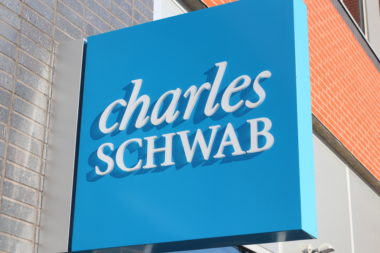Credit unions are nonprofit and member-owned financial institutions that offer many of the same financial services banks do. They strive for better customer service than banks and advantageous interest rates that could allow you to generate additional income. Additionally, many people take their business to credit unions because of their local ties.
While these can be valuable advantages, there are few things to consider when deciding which credit union is right for you. This guide explains what you need to know when choosing the credit union that’s best for you and your financial situation.
Table of Contents
Membership
To join a credit union, you must become a member. Credit unions generally require that members meet certain criteria, which can be either:
- That they live in a certain geographical location.
- That they are friends or family of current members.
- They are employees of a company tied to the credit union.
- They are members of a group, such as a school, church, or other community organization.
If you wish to sign up for a credit union, research the ones in your area to see what their membership requirements are. Use a credit union finder to locate the credit unions nearest you.
Financial Security
Whether privately or federally, by law, credit unions must be insured. Federally insured credit unions are just as safe as traditional banks backed by the Federal Deposit Insurance Corporation (FDIC). In the event that the credit union goes under, your money is backed by the National Treasury.
Conversely, a privately held credit union is still insured, which means your money is safe, but it does mean that your money isn’t backed by the government. This can be problematic when it comes to guaranteeing your funds.
It is important to select a credit union that has insurance you value and trust. Depending on your financial status and how much money you have to keep safe, you may prefer the credit union with which you open an account to be federally insured as opposed to privately insured.
Location
Because credit unions are typically smaller financial institutions, one of the disadvantages of banking with them is that they typically have fewer branches and ATMs available. This makes it less convenient for you to get ahold of your money when you need to.
Before opening an account at a credit union, consider how many locations it has and where they are in relation to your home, school, or office. It’s important to choose a bank that fits your needs and is convenient to get to when you need financial services.
If you satisfy most of your financial needs online, the number of locations a credit union has may not be a problem for you. However, if in-person banking is what you rely on and prefer, you may want to select an institution that has the most branches and ATMs available in your area.
Customer Service
Credit unions have historically been recognized for higher customer service satisfaction. This may change once their membership grows and they become a larger institution.
If you’re looking to bank with a credit union, first consider the current size of the bank and the types of customer service they offer. Some credit unions may only offer customer service in person because they only have the manpower to do so, while others may offer limited hours of customer service.
Additionally, consider how personalized you want your customer service to be. Are you looking for online assistance that’s available 24/7? Smaller credit unions may not be able to offer that, but larger credit unions may have that option.
Online credit unions and banks have also become more popular and may be known for their customer-friendly service options and ease of use. Perhaps you do most of your banking online — a digital credit union might be the option that’s right for you, so don’t forget to consider online credit unions as well.
Rates and Fees
The largest difference between a credit union and a bank is that banks are for-profit, while credit unions are nonprofit organizations. Because credit unions operate with their members — not a board of investors — in mind, many credit unions tend to offer better savings account rates and loan terms. Credit unions also offer credit cards with more favorable annual percentage rates (APR).
On the other hand, community banks may be able to offer larger, more substantial loans or lines of credit, but at a higher cost to you.
When choosing between traditional banks and credit unions, always consider your own personal finances, what your financial goals are, and how you are intending to use the line of credit or account that you are opening. This will help you make the decision that best fits your needs.
Technology
Technology makes our lives easier in many ways, and while the tech gap is closing for many small banks and credit unions, not every institution offers the same tools. Many people use mobile banking to keep track of their finances, as well as mobile check cashing for convenience. If you utilize a lot of online or mobile financial features, you should absolutely check with any financial institution before you elect to bank with them.
Base your banking decision on your financial needs and the ways in which you will utilize the bank or credit union.
Image Source: https://depositphotos.com/





